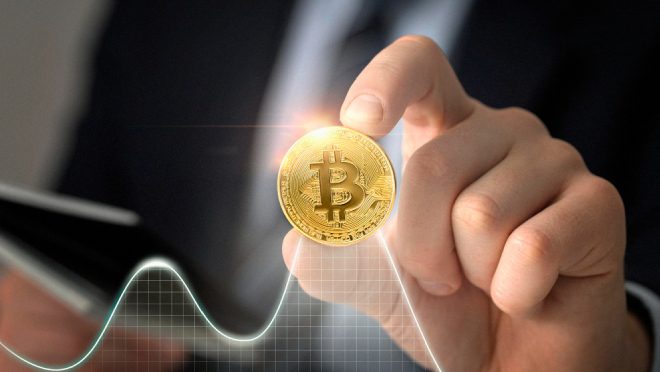In the ever-evolving landscape of digital currencies, the question of whether Bitcoin can be likened to traditional gold or is merely speculative smoke looms large. This exploration seeks to dissect the attributes, challenges, and potential of Bitcoin as digital gold, shedding light on a debate that resonates throughout the financial world. Investors keen on diversifying their strategies often turn to platforms like BTC iPlex Ai to optimize their trades. Get started now and stay ahead of the curve!
Bitcoin as Digital Gold
Gold has long been revered as a reliable store of value due to its intrinsic properties. It possesses a tangible, physical presence, scarcity, and divisibility. These attributes have established gold’s reputation as a trusted asset for preserving wealth.
Bitcoin, the first decentralized currency, on the other hand, is a digital entity, but it shares some fundamental characteristics with gold. It is scarce by design, with a fixed supply capped at 21 million coins. This scarcity is akin to the finite quantity of gold available on Earth. Bitcoin, like gold, is also divisible into smaller units, making it practical for transactions.

The potential for Bitcoin to serve as a store of value lies in its scarcity and historical price performance. With a predetermined supply limit, Bitcoin exhibits a built-in scarcity mechanism that contrasts with traditional fiat currencies subject to inflationary pressures.
Bitcoin’s price history further underscores its potential as digital gold. It has experienced significant price appreciation over the years, demonstrating resilience amid economic uncertainties. Notable institutions and investors have recognized Bitcoin’s value as a store of wealth, further bolstering its credibility in this regard.
One of the key arguments supporting Bitcoin as digital gold is its ability to act as a hedge against inflation and economic turmoil. In times of economic instability, investors often seek refuge in assets that retain their value. Gold has historically fulfilled this role, and Bitcoin appears poised to do the same.
Numerous case studies highlight instances where Bitcoin adoption surged during economic crises, particularly in countries experiencing hyperinflation or currency devaluation. This suggests that Bitcoin’s store of value proposition is not solely
theoretical but has practical relevance in real-world scenarios. Now, lets dive into the challenges that Bitcoin faces when thought of as Digital Gold.
Challenges to Bitcoin as Digital Gold
Bitcoin’s price volatility is a glaring concern when considering it as a store of value akin to gold. Unlike gold, which tends to maintain a relatively stable value over time, Bitcoin’s price can experience substantial fluctuations within short periods. This volatility stems from various factors, including market sentiment, regulatory developments, and external events.
The prevalence of speculative trading in the Bitcoin market exacerbates this issue. Speculators seeking short-term gains contribute to rapid price movements that can undermine Bitcoin’s perceived stability. This volatility can deter risk-averse investors and hinder Bitcoin’s adoption as a reliable store of value.
Government regulations and potential restrictions pose another formidable challenge to Bitcoin’s status as digital gold. Bitcoin operates in a legal and regulatory gray area in many jurisdictions. Governments are still grappling with how to classify and regulate this digital asset, leading to uncertainty for investors and users.
Heightened regulatory scrutiny can result in increased compliance costs and restrictions on Bitcoin transactions. Such measures could undermine its fungibility and ease of use, making it less appealing as a store of value. Additionally, regulatory crackdowns may deter institutional investors from entering the market, limiting its growth potential.
While Bitcoin offers promise as a digital counterpart to gold, it faces substantial challenges in achieving this status. Price volatility and speculative trading dynamics can erode confidence in its stability, while regulatory uncertainties add complexity to its adoption. Acknowledging and addressing these challenges are crucial steps in determining whether Bitcoin can truly be considered digital gold or remains a speculative asset.
Conclusion
In navigating the complex terrain of Bitcoin’s role as digital gold, we confront a dynamic interplay of strengths and challenges. While Bitcoin’s scarcity and performance align with gold’s characteristics, volatility and regulatory uncertainties cast shadows of doubt. The verdict remains elusive, leaving us to ponder whether Bitcoin truly shines as digital gold or remains enshrouded in speculative fog. Thanks for reading till the end, and I hope the guide is useful and informative. Happy trading!




